Do weird, random questions about bird pee and poop ever wander through your head that might make you feel like an oddball if you asked them out loud? For example, do birds pee? Do they fart? Why is their poop white? If so, then you will be happy to know that there are plenty of other people out there asking Google the same questions.
In this post, you get answers to these questions and many more. Plus, of course, funny photos of birds pooping.
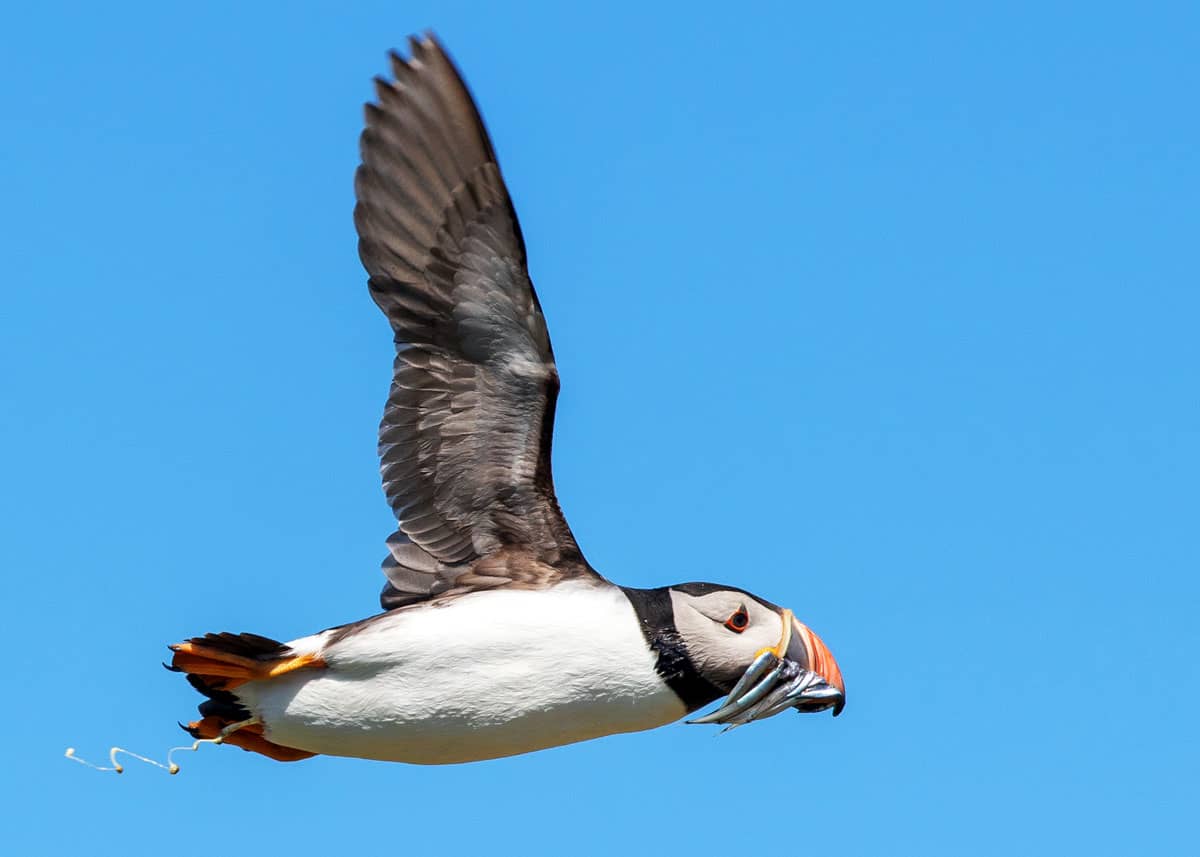
So, to satisfy your peculiar musings, we have decided to provide you with this list of 17 questions and answers about bird pee and poop.
Table of Contents
17 Questions About Bird Poo and Pee: Answered
Our bathroom deposits; we all make them but most of us prefer not to discuss them among intellectual society. We are not intellectual society. So please enjoy this nearly exhaustive Q&A answering all your bird defecation questions!
1. Do birds pee and poop at the same time?
Yes, they do. They are efficient like that because they have places to fly and bugs to catch. They don’t have time to pee and poop separately.
Actually, what they do is pee-poop, a combo of the two at the same time. Their pee and poop mix up together inside them (more about that later) and come out of the same hole; a multi-purpose hole through which they also mate and lay eggs.
Birds really know how to get things done with minimal equipment and in short order.
2. Do birds fart?
Admit it. This is a question you have always wanted to know but were too afraid to ask. You’re not the only one. According to Google searches, this is a question that is burning in the inquiring minds of many people across the globe.
The quick answer is “No.” Because birds have shorter intestines (compared to mammals) and a fast-working digestive system, there really is no time for the gas to build up inside them.
This is a good thing because trying to fly with a bloated belly would slow birds down. It’s good for humans also.
Can you imagine standing under a tree of roosting birds that are all farting one after another? No, let’s not imagine that.
3. How do birds pee and poop?
So, now you are begging to know just how do birds pee and poop if they do it at the same time? If you don’t want the answer riddled with a muddle of scientific jargon, let’s suffice it to say that they mix it all up into what looks like a glob of glue that sticks to your car.
But, if you really must know the ins and outs of bird pee and poop, I’ll let you in on the scoop. Birds have kidneys but not bladders. Like humans and all other terrestrial animals, they need to get rid of nitrogenous waste because it forms toxic ammonia.
You and I excrete this waste by urinating, but birds change their nitrogenous waste to uric acid which is used to conserve water in their bodies.
The uric acid then mixes with the solid waste from the intestines and together, they slide down the same chute, which is known as the bird’s cloaca.
4. Do birds pee through their skin?
This seems like an outrageous question. Who would ever ponder such a thing? However, when I think about how some birds deliberately poop on their legs for the purpose of regulating their body temperature, I can see why some people might wonder about this.
Anyway, the answer is no, birds do not pee through their skin, and neither does any other animal for that matter. Now, as for some amphibians, that is a whole other story for an entirely different website.
5. What does bird pee/poop look like?
Most people have seen bird poop splattered on cars, park benches or patio furniture. If you have ever seen those droppings and don’t realize it’s bird pee/poop, let me fill you in on what bird droppings looks like.
Bird pee/poop mainly resembles a chalky white blob that looks like Elmer’s glue and sometimes even has the sticky consistency of glue.
This blob consists of three parts: the white stuff that is the uric acid from the kidneys, small yellow-green-brown bits which are the solid waste from the intestines, and clear liquid portions that are the urine from the kidneys.
Most of the time, the different parts of pee/poop make up an equal balance and form a neat swirl, but if the bird has consumed too much liquid, you will see droppings that are loose and runny.
6. Why is bird poop white?
You may have wondered this like many other curious folks, but the reason goes back to Question Numbers 3 and 5 on this list.
When uric acid from the bird’s kidneys mixes with the solid waste in the intestines, it turns the poop white.
7. Do birds poop purple?
You’ve probably heard a song about purple rain but sometimes birds rain down purple poop. So, if bird poop is usually white, what’s with all the purple stuff in it?
Those purple or dark bits are from berries such as blackberries and wild raspberries that many birds eat.
The digestive system of birds works really fast so that whatever they eat comes out pretty soon afterward.
8. Is bird poop bad for you?
It depends on what you are doing with it. Are you rubbing it on your face to enhance your skin? (Yes, there really are people who do this!)
If you don’t watch where you are walking, you could slip on bird poop and wind up quickly on your bum.
Generally speaking, you need not freak out if you come into contact with bird poop. Other than being gross, it usually will not hurt you.
However, if you live or work around farm poultry or in crowded, urban places where there are large populations of birds like pigeons, geese, house sparrows or starlings, you should take caution.
Masses of birds in the same place equals gobs of poop globs, and that can result in potential diseases which are discussed in the next question on this list.
9. What can you catch from bird poop?
If you live or work in places that are littered with bird droppings, you know how easy it is to get bird poop on your shoes, clothes, vehicles or equipment.
More reading: How to remove a tick
Dogs and cats can also walk in it and carry it into your home. If any of that bird poop is contaminated with viruses or diseases, you could be at risk. Below are some of the most common illnesses you can catch from bird poop:
- Bird flu: One of the scariest illnesses that you can catch from bird poop is bird flu, also known as H5N1, a serious virus that is 60 percent fatal in humans. Most cases come from farm poultry such as chickens, turkeys, geese, and ducks. Fortunately, health authorities monitor large bird populations and their migrations to prevent and control the spread of this disease. To protect yourself and others, you should always avoid dead birds. If you own farm poultry, it’s a good idea to never allow them to come into contact with wild birds, and you should isolate any new poultry birds from your flocks for at least two weeks.
- Histoplasmosis: This respiratory disease is caused by a fungus that grows in bird poop.
- Candidiasis: Although this painful yeast infection can come from other sources, it can also be contracted from the poop of pigeons. It affects the respiratory system, skin, intestines, and genitals.
- Cryptococcosis: Caused by yeast in the intestines of pigeons and starlings, this illness affects the lungs and central nervous system. If you live or work in places where these birds like to hang out, such as warehouses, park buildings, and offices, you could be at risk.
- St. Louis Encephalitis: You can get this virus from a mosquito that has fed on contaminated bird poop. It causes inflammation of the nervous system and can result in paralysis, coma or death.
- Salmonellosis: With symptoms similar to food poisoning, this illness is caused by bacteria from raw poultry or from the dust on bird droppings that’s been sucked into homes, restaurants, and food processing plants through air conditioners and ventilators.
10. What does it mean when a bird poops on you?
Some people, like NBA player Dwayne Wade, believe that being pooped on by a bird brings good luck.
Now, please forgive me (sorry Dwayne), but this all seems a little… well, crazy. How is bird poop a good thing?! Especially after what we just learned about all the diseases you can catch from bird poop!
11. Why doesn’t bird poop smell?
Yes, birds can honestly say their stuff doesn’t stink. The reason why is because they eat mainly fruits and vegetables.
Meat protein is what makes mammal poop smelly. Plus, humans and animals have anal glands which give off unpleasant odors.
So, there’s more than one reason for birds to hold their heads higher than lowly, earthbound humans.
12. How often does a bird poop?
It depends on a bird’s size. The smaller a bird, the more times it will poop in a day. For example, a parakeet may poop up to 50 times a day while a larger bird may only poop 20 times a day.
When you fly, you can’t afford to carry around any extra baggage, so birds use their high metabolic rate and quick digestive process to eliminate waste frequently.
14. Do birds prefer to poop on red cars?
The next time you go car shopping, you may want to consider the importance of color.
According to a British study conducted in 2012 by the British car parts retailer, Halfords, birds prefer pooping on red cars.
In the study, more than 1,100 cars were observed in five different cities over a two-day period. The majority of cars pooped on were red. While there are plenty of theories suggested, no one really knows why birds would prefer one color over another.
15. Do birds poop in their nest?
Are you kidding me? Birds are way smarter (and cleaner) than that. They will poop nearby their nest but not in their nests.
Soon after feeding, baby birds produce mucous membranes, known as fecal sacs. These white, or clear, membranes contain feces and allow the parents to remove the waste from the nest.
When nestlings are old enough to posture themselves properly, they will stick their rear ends over the edge of the nest to poop outside of it. Pretty cool, don’t you think?
16. Does bird poop really make your skin glow?
Yes, according to some experts, getting a bird poop facial at the day spa can make your skin look young and radiant.
Before you start wondering what this new generation is going to come up with next, you should know that this has been a popular treatment for centuries in Japan.
Back in the day, Japanese geishas applied nightingale droppings to their faces to repair the damage done by the lead painting in their makeup.
As it turns out, there are enzymes in bird poop that cleanse and exfoliate your skin. Nightingale poop is especially rich in nitrogen which keeps your skin hydrated and supple, as well as guanine, an amino acid that produces that shimmery effect often used in cosmetics.
However, you don’t want to try this at home by going out and scooping up bird poop off the driveway. It doesn’t work like that.
Bird droppings used in facial treatments are collected from licensed manufacturers who dry the droppings (by vaporizing) and sterilizing them with UV light until they become a fine powder that is ready to be made into a paste with water.
17. Does bird poop help plants grow?
Bird poop may not help plants grow directly, but it can fertilize the soil where plants do grow. For soil that is deficient in nutrients like phosphorous and nitrogen, bird poop offers the perfect solution.
Seabirds especially produce highly effective fertilizer thanks to their fish diet.
Another way that bird poop helps plants grow is by spreading seeds. After birds eat berries, fruits, vegetables, and other plants, they often will end up pooping out the seeds in a different place from where they first consumed them.
By doing this, the seeds can grow and thrive because they don’t have to compete with the mother plants.
Looking for other strange bird stuff? Check out our posts on the weirdest birds in the world!
What a Crappy Post…
We hope you have enjoyed this question-and-answer list. Hopefully the next time you hear someone ask if birds pee and poop at the same time, you will have a ready answer for them.
They will either be impressed with your knowledge of bird pee and poop or weirded out.
Just keep in mind that knowledge is power. If you have any questions about bird pee/poop that haven’t been answered, let us know in a comment!
Drew Haines is an animal enthusiast and travel writer. She loves to share her passion through her writing.
She graduated high school at sixteen and started her own business, Everywhere Wild Media. And she runs Everywhere Wild and JustBirding. She also guest blogs on Storyteller.Travel
She lived in Ecuador for 6 years and explored the Galapagos Islands. Currently based in N.S., Canada.

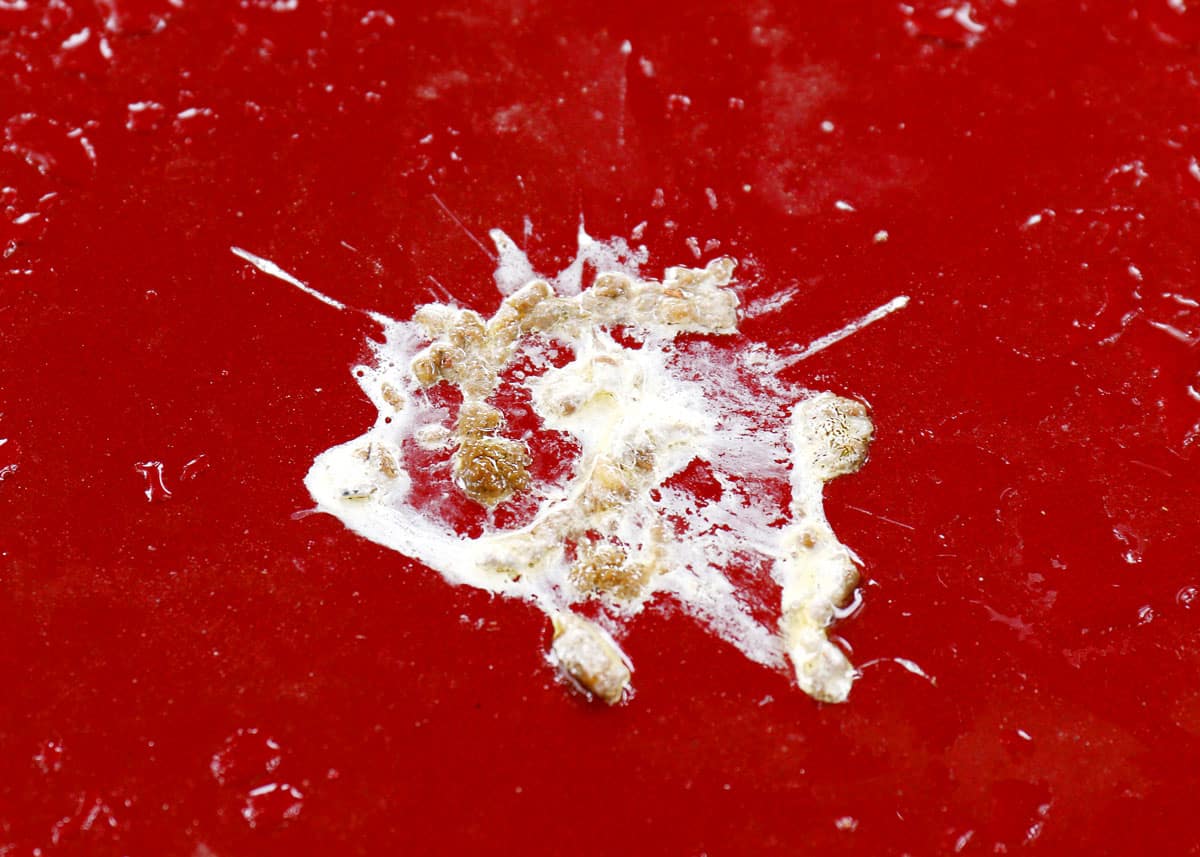
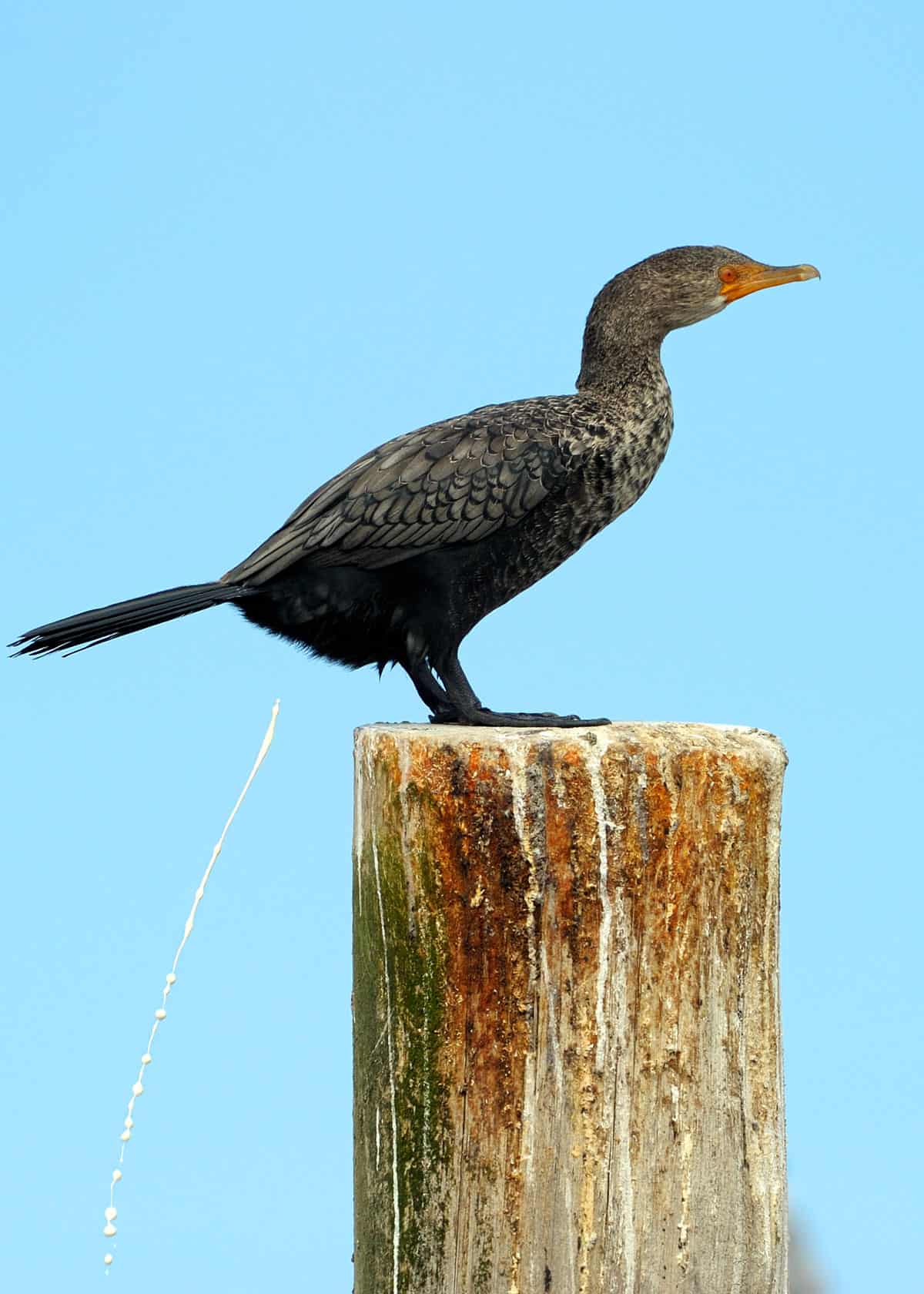
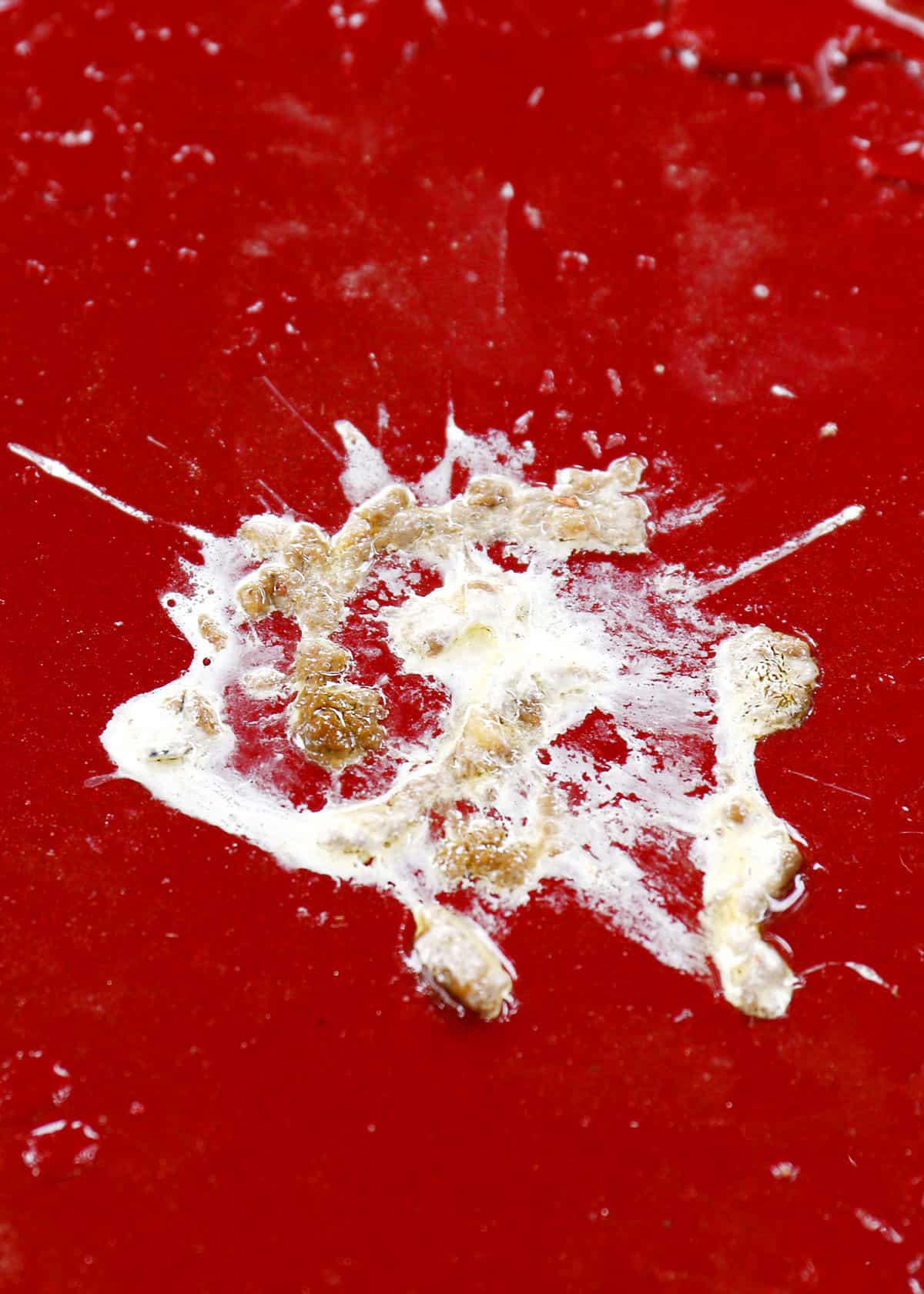
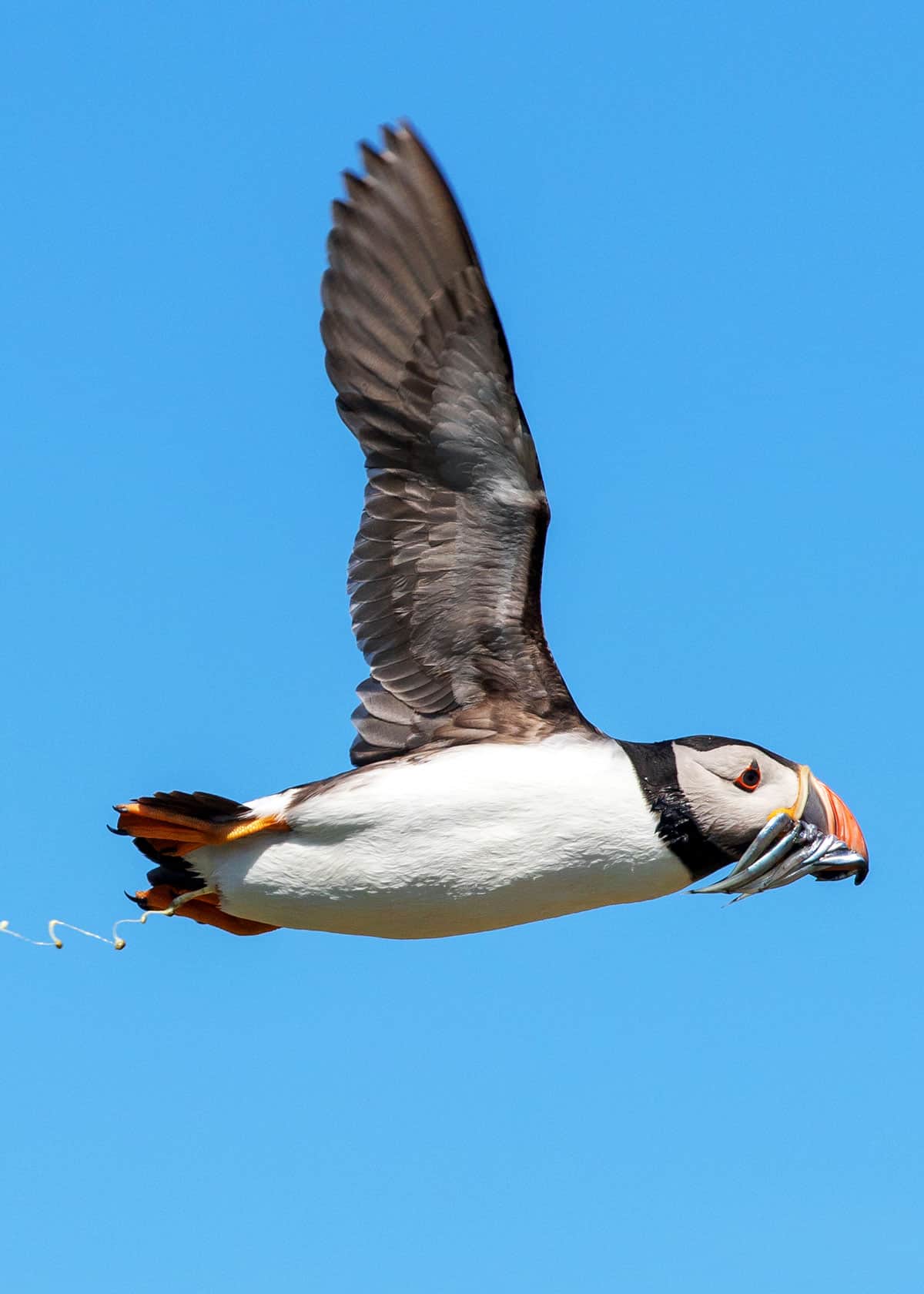
Deidra Huestis
Monday 12th of July 2021
Hi I have been sprinkling bird seed on the ground (dirt) and mostly doves are eating it. What's strange is that I don't see hardly any bird poop around. Don't they poop while eating?
j m burr
Monday 4th of January 2021
facinaating fun
Norman Dalgetti
Thursday 16th of April 2020
Hi Drew This is fascinating stuff, thank you for your site. I have a couple of questions if that's ok. 1. I would agree about red cars, but I had a car that was the closest to sky blue I've ever come across. Parked in the driveway (nowhere near a tree) it was the birds' favourite target in our street. In no time at all it looked like a wedding cake on wheels. Were they confused by seeing the sky above and below? 2. With all the millions of birds why isn't the world covered in bird crap? Bird poo is a relatively rare sight in most places. 3. Why do birds crash into things in broad daylight? At one office block I worked in birds colliding with top floor windows was such a regular occurrence that everyone ignored the sound. It's not the altitude, it also happens at ground level. I was stationary in my car waiting to pull out of a car park when a crow crashed into the passenger window at full speed. Luckily for me it had toughened glass, bad news for the crow. It's quite sad that birds often kill themselves in this way.
Serge
Thursday 18th of July 2019
Hi Drew! Thank you for posting this, I have been looking into birdpoop for a while as I am currently busy with an experiment recreating artificial birdpoop. I need to recreate the effect that it has on the exterior of a car. I have used uric acid and water to make a paste but that slides off way too easy. Do you have an idea as to what would be useful to add to the mixture?
Thanks for reading!
Kind regards,
Serge